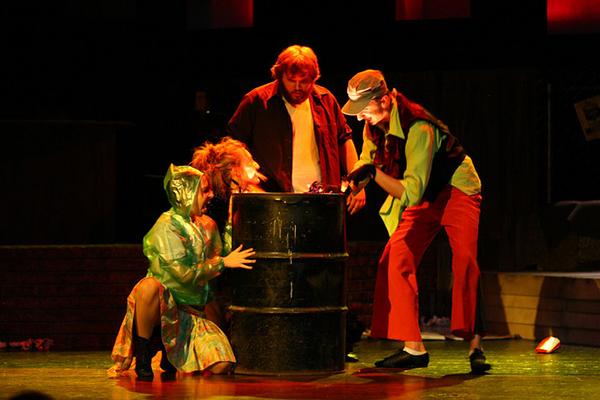If you have a friend in the theater, then you’re probably guilty of it – you hear they’re performing tonight and, whether or not you’re able to attend, you want them to know you support them so you utter those two fateful words: good luck.
While the intent behind such an utterance is almost always pure, this is actually one of the worst things you can do to a superstitious actor before they enter the stage as it actually guarantees them bad luck in their performance. If one actually wanted to wish good fortune to an actor or musician, the correct turn of phrase is the ironic “break a leg.” While scholars cannot confidently pinpoint the origin of this phrase, it’s known around the world as the best way to actually wish a performer good fortune.
While this particular superstition could be enough to label the entirety of theatrical society as superstitious, it’s merely one in a long line of superstitions that thespians hold to religiously. Another of the most famous superstitious rule of the theater is the Scottish curse. While there are numerous theories as to the curse’s origin (including but not limited to bankrupted theaters, stolen props and plagiarism), it is well circulated amongst the theatrical community that speaking the title of Shakespeare’s “Macbeth” while within a theater will summon the three witches from the play to cause all sorts of misfortune. Theater folk avoid this terrible fate by referring to classic work as “the Scottish play” and the leading characters as “the Scottish King/Lord” and “the Scottish Lady.” For anyone unfortunate enough to invoke the Scottish curse on their theater, there are cleansing rituals that include spinning, spitting and speaking some of Shakespeare’s sacred sonnets.
Witches aren’t the only specters that theaters must be wary of, for ghosts also seem to choose theaters as frequent haunts. In fact, the University’s own Marian Gallaway Theatre is said to be haunted by Marian Gallaway herself, and our theater department’s history is filled with stories of her mostly harmless, though always mischievous, hijinks.
Marian and all other theater ghosts can be appeased by honoring a few simple traditions, though, the most famous of which is the utilization of a ghost light. A ghost light is a single electric bulb on a simple stand that lights the stage without the impedance of a shade when all other lights are out. While ghost lights do serve to assist the living in lighting the way between the door and the light panel for the first and last to occupy the theater, it also serves as an illumination for any and all ghosts who put on their own spectral performances once the fleshy actors have departed.
Between broken legs, Scottish plays and ghostly lamps, the theater is full of superstition that is not to be trifled with. In addition to these general “rules” of the theater, every theater has its own ghosts to be appeased and rituals to be performed. And while they may not appeal to some of the more modern-minded thespians, the entire theatrical community rallies around these little superstitions because they’re more than that. They’re rooted in tradition and storytelling, which is truly what theater is all about – Marian told me so herself.









